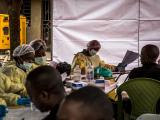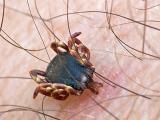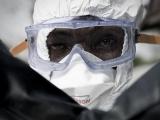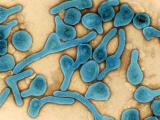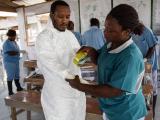Apr 8, 2005 (CIDRAP News) Local residents attacked the vehicles of disease surveillance teams in Angola yesterday, stalling efforts to find Marburg hemorrhagic fever cases even as the toll in the outbreak climbed further, the World Health Organization (WHO) said today.
The outbreak has expanded to 205 cases, 180 of them fatal, the WHO reported in its latest update. Earlier today, WHO officials at a briefing in Geneva had put the death toll at 174.
"Mobile surveillance teams in Uige were forced to suspend operations yesterday when vehicles were attacked and damaged by local residents," the agency said. "As the situation has not improved, no surveillance teams were operational today in this province, which remains the epicentre of the outbreak.
"WHO staff in Uige were notified today of several fatalities but teams were unable to investigate the cause of death or collect the bodies for safe burial. Discussions have been held with provincial authorities to find urgent solutions."
The deadly disease, which resembles Ebola fever, is spreading fear, the WHO said. "Moreover, because the disease has no cure, hospitalization is not associated with a favourable outcome, and confidence in the medical care system has been eroded," the agency said.
Similar reactions have been seen during outbreaks of Ebola fever. To help educate the public about the disease, two medical anthropologists are in Uige and will be joined by experts in social mobilization from Angola, the Democratic Republic of the Congo, and Mozambique, the WHO said.
Getting the affected communities involved as partners is the key to controlling viral hemorrhagic fevers in Africa, officials said. To achieve this, "Local belief systems about the causes of disease and traditional rituals for mourning the dead must be respected. When the public understands and accepts a few simple messagesavoid contact with blood and other fluids when caring for the ill, dont touch bodies of the deceasedtransmission within the community can be stopped and the outbreak brought under control."
The WHO also launched an appeal today through the United Nations for funds to support the response to the outbreak. The agency said $2.4 million is needed to strengthen field operations by Angola's Ministry of Health.
See also:
Apr 8 WHO statement
http://www.who.int/csr/don/2005_04_08a/en/
